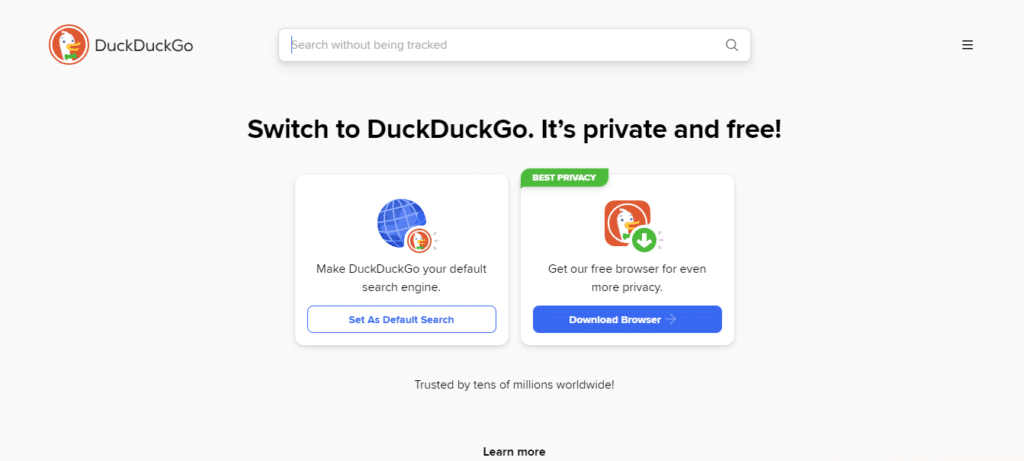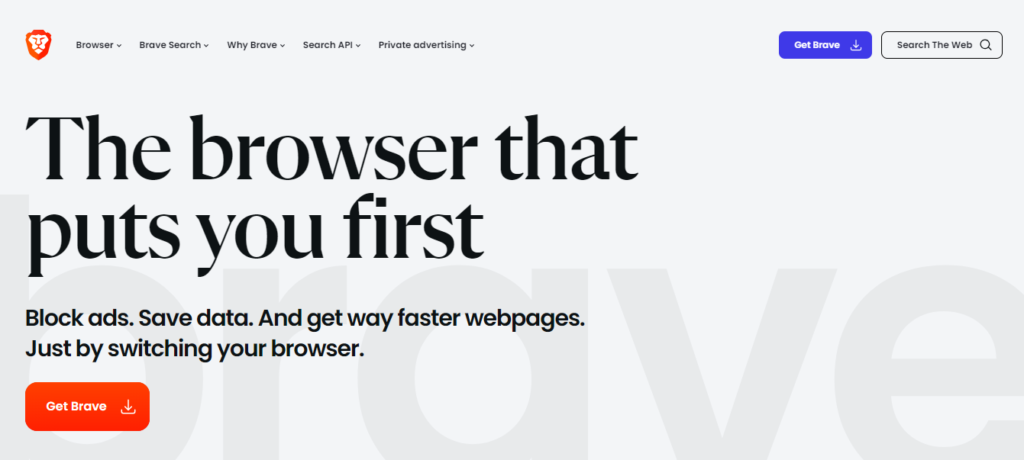We all use Google. The search engine is so successful that the brand name describes the very action of looking things up online. After all, you don’t “Bing” it, you Google it.
Despite that dominance, nearly 20 percent of all online searches happen on engines not named “Google.” When you consider that billions of searches happen every day, that’s actually a lot of not-Googling.
It brings up an interesting question. If you aren’t using Google, what should you choose? What are the best search engines besides Google? Today, we’re going to explore that very question in detail.
- The Top 5 Search Engines Besides Google
- Best Search Engines for Accuracy
- The Best Unbiased Search Engines
- Safer Search Engines: Prioritizing Privacy
- Google vs. DuckDuckGo: Which Is Better?
- Bringing It Back to Your Website
The Top 5 Search Engines Besides Google
Ranking search engines can be a touchy subject. If you ask this question to a hundred different people, you will get a hundred different answers.
On top of that, there is a rich irony that any endeavor to rank search engines is going to include some level of bias (even if it’s all unconscious bias). This will come up again when we talk about the best unbiased search engines.
Still, we have to start somewhere, so let’s look at an easy metric. What are the most popular search engines besides Google?
In terms of market share, the best engines after Google are as follows:
- Bing
- Yahoo!
- Yandex
- DuckDuckGo
- Baidu
Some of those might look familiar, while others might surprise you. Either way, are the most popular search engines necessarily the best?
Some might think so, but if we dive into other metrics, then things change a bit. So, let’s explore some of the factors that might impact quality:
- Accuracy
- Bias
- Privacy
- Other features
We could consider more categories, but these will provide us with plenty to discuss.
Starting with the easiest category, which search engines have the best features?
This is the most subjective category, and the honest answer is a little boring. The best engine is the one that has the features you like the most. Major players in the game are all competing to give you better synchronization, customization, and access to AI. Play with them and see what you like the most.
If you’re looking for a place to start, here’s a short list:
There are many more search engines that offer unique sets of features. Have fun exploring!
Best Search Engines for Accuracy
Now that the easy part is covered, what are the most accurate search engines? Which ones successfully take you to sites you actually want to see?
You might find this unfortunate, but the most accurate search engines are also the most popular. Google clearly dominates this field, with Bing and Yahoo! rounding out the top three.
In fact, every search engine listed in this article will be proven in terms of accuracy, with one general exception. Many countries regulate search results to some degree, so the results you see while browsing in one country might differ when in a different country (or using a VPN in different countries).
This doesn’t make anything inherently unreliable, but it does impact what you actually see, and it’s worth remembering when you compare results.
With that out of the way, the search engines listed previously all score well in terms of accuracy. A few more to note include Dogpile, You.com, and Perplexity AI.

The Best Unbiased Search Engines
Moving on to the next category, we have to talk about bias. Every person has biases, and that means every programmer has biases too. Those inevitably filter into the created search engines. On top of that, cultural and political influences can also impact bias.
If a country dictates certain search results for queries within its borders, search engine creators don’t get a lot of freedom in how they deal with that kind of bias. It will simply show up in the results.
That makes bias analysis tricky, but a few search engines go above and beyond to try to mitigate biases in your results, and they are worth mentioning.
DuckDuckGo
You’ve already seen this pop up a few times. DuckDuckGo was designed to address a handful of complaints frequently levied at Google. At the top of the list are bias and privacy.
Whether or not Google is biased in search results is a long discussion, but as we’ve already seen, every engine is going to have at least some biases. What separates DuckDuckGo is actually its privacy protection.
The engine does not allow parties to track your searches and results. This will come up again when we talk about privacy, but it also impacts bias.
Search engines that track your results will inevitably start to feed you results according to your preferences. The goal is to give you results that you value, but this can create personalized, biased bubbles. DuckDuckGo mitigates that issue by simply not tracking you.

Brave
Next up is Brave. Like DuckDuckGo, Brave was developed in response to the common complaints that Google does not protect privacy and offers biased search results. Additionally, Google gets complaints relating to the number of sponsored search results that appear before organic results.
Much like DuckDuckGo, Brave ditches user tracking and data collection, and this offers the same benefit in terms of personalization bias.
Additionally, Brave offers an ad-free experience. This can make search results feel even more unbiased, as ads usually target users and feed back into those personalized result bubbles.

Safer Search Engines: Prioritizing Privacy
Switching gears, which engines offer the best in terms of privacy?
This will not surprise you, but DuckDuckGo and Brave top the list again. Between the two, DuckDuckGo takes the edge. While neither browser uses tracking data to influence your search results, Brave does have more personalization features.
DuckDuckGo is designed to provide a completely anonymized user experience. The search engine knows nothing about you, and as a result, it can’t tell any of your personal information to anyone else on the internet.
It offers the highest levels of privacy in the world of search engines.
Brave is not far behind, but second place is still second place.
Google vs. DuckDuckGo: Which Is Better?
Through this quest of comparing features, designs, and philosophies, we can see that DuckDuckGo consistently rises to the occasion and tops many lists as the best Google alternative.
Of course, the next question is only natural. Which is better?
That’s difficult to say. Google still dominates searches with more than 80% of the total market share. That’s because Google is fast, reliable, and pretty much sets the industry standards.
DuckDuckGo offers competition, but not in basic search results. In those terms, the two are quite comparable.
The real differences come back to privacy. DuckDuckGo offers substantial privacy improvements. If you don’t like being tracked on the internet, it’s a vastly superior search engine.
But, it’s worth noting the cost of anonymizing your internet activity. DuckDuckGo cannot personalize your experience to any degree.
If you like to do your clothes shopping online, Google can get to know your preferences and steer you toward results you’re more likely to appreciate. DuckDuckGo can never do that. For searches where personalization makes things easier, Google is the clear winner.
Here’s the bottom line. If you want the personal touch, stick with Google. If privacy matters most, DuckDuckGo is your champion.
Bringing It Back to Your Website
So, why did we spend all of this time talking about search engines? At the end of the day, if you want people to find you via search engines, it’s important to understand these points of view. Will search engine optimization for Google help your results on DuckDuckGo?
That answer deserves its own article, but the short answer is that you need to cater to both, and that’s easier with a little help. That’s where you can benefit from Rock Content’s expertise. The experts at Rock Content can help you deliver customized content that enhances your search rankings and the quality of your online presence.
You can get started by exploring Rock Content’s Content Experience resources to see how it can make a difference for you.







